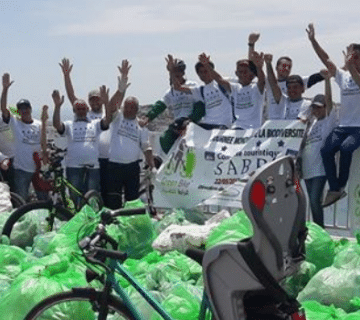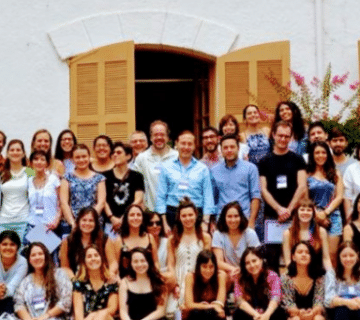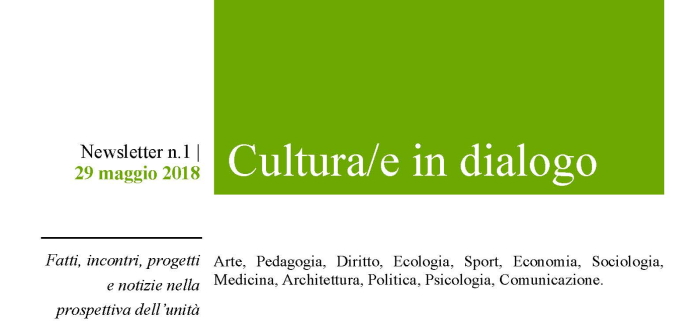Ladies and gentlemen, civil authorities,
all who are taking part in this conference,
I am very happy to greet all of you and to express some of my thoughts on the theme of this conference: “Social interactions and brotherhood: a sustainable model or a paradox?”
Right from the beginning of the Focolare Movement, the charism which we had received from on high revealed to us anew that God is Love. Our eyes were opened to this reality and even though the war was raging all around us (we were in Trent in 1943), we perceived God’s presence everywhere with his love: throughout our days, in the joyful and comforting events, in the sad and difficult ones…
This deep and sterling faith in God as Love immediately created a new and unshakable bond among us first focolarine and focolarini. We felt that we were sons and daughters of a Father who is in heaven, and because of this, brothers and sisters to one another.
Besides, the commandment that Jesus called “mine” and “new,” “Love one another as I have loved you” (Jn 13:34), seemed to be a concentrate of God’s desires and it was logical for us to promise to be its fulfilment and to make it the norm of our life.
A new lifestyle was thus born in the Church, an individual spirituality, yes, but also a communitarian one, suitable for the needs of our times, characterized by strong interpersonal relationships and by those of interdependence among peoples.
God, who manifested himself to us in his essence as Love, revealed himself as love also in his interior life: Father, Son and Holy Spirit. And the dynamics of his intra-Trinitarian life appeared to us as mutual self-giving, mutual dying to oneself out of love, total and perennial communion. In the Gospel of John, it is written: “Everything of mine is yours and everything of yours is mine” (Jn 17:10) between Father and Son in the Spirit.
An analogous reality was expressed by God in his rapport with human beings. As the Father in the Trinity is all for the Son and the Son is all for the Father, in the same way – it seemed to me – I too have been created as a gift for my neighbor and my neighbor as a gift for me. For this reason, the relationship between us is one of love, it is Holy Spirit: the same relationship which exists between the three divine Persons of the Trinity.
Immersed in this light, we saw how on this earth all created things are linked to one another by love, each thing with each thing.
Our human reasoning or sensibilities rarely succeed in grasping this truth. We often see only a partial side of reality in which the difficult aspects of our human relationships are more pronounced, marked as they are by contradictions and conflicts. It then becomes an arduous task to individuate, especially in today’s complex societies, harmonious relationships of communion.
Our charism showed us that brotherhood is a spiritual principle which is also an anthropological, sociological, and political category… capable of triggering a global process of societal change and renewal. Brotherly love establishes positive social relationships everywhere, capable of rendering our human consortium more cohesive, more just, and happier.
Our more than 60-year-old experience tells us that these relationships of brotherhood lived out on a daily basis and on a personal level, both in the family and society, in political forums and economic structures, free up untapped moral and spiritual resources.
They are new types of rapports, full of meaning, which give life to the most varied projects, which inspire structures that are for the good of individual citizens and of the community as a whole.
Based on this experience, we can thus state that universal brotherhood is not merely a utopia, a wonderful and hoped-for outcome, but something which is still beyond our reach. Instead, it is a reality which is making headway in the history of humanity.
We can observe how contrast and conflict are present in relationships within every sphere of society. This is surely a consequence and fruit of the mystery of evil which touches not only our personal life but also invests our common living.
But our charism, right from its inception, gave us a key for understanding that mystery and with it, a model for overcoming every difficulty. This key is found in he who recomposed the bond between God and humanity and unity among all human beings.
It is Jesus who on the cross cried out: “My God, my God, why have you forsaken me?” (Mt 27:46; Mk 15:34). In that terrible cry of a God who felt abandoned by God, every pain, every suffering, every disunity is expressed and assumed… to then be transformed into love by him.
Jesus, in fact, came on earth and offered his life so that all could be one (Ut omnes unum sint). Jesus, in his abandonment, paid so that this could become a reality, but he needs a hand from us to bring it about in today’s world.
I wish that all of you present at this conference may build true relationships of brotherhood in these days, so that your intellectual efforts may be sustained by an authentic experience of life of communion.
May Mary, the Mother of Beautiful Love – she who was the first to learn from her Son the message of universal brotherhood, she who went to Elizabeth to help her in her need, she, who as the true “social person,” created with the Word made flesh and his disciples, a family where love united, grew, circulated and overflowed unto everyone – may she guide and illumine our entire conference.
In fraternal love,
Chiara Lubich


 Italiano
Italiano Español
Español Français
Français Português
Português


